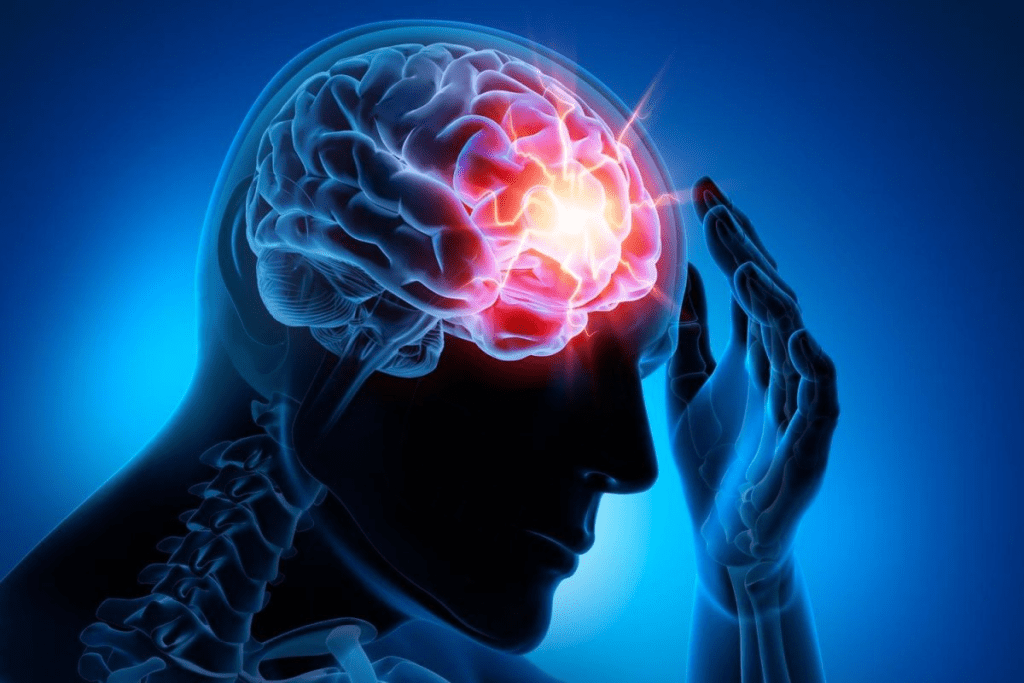Last Updated on November 24, 2025 by

Going to see a neurologist can feel scary if you don’t know what to expect. At Liv Hospital, we’re here to help you feel comfortable and informed. We want to make sure you know what’s happening every step of the way. What happens during a neuro consult? Learn when should you see a neurologist and the crucial, powerful role of the exam in diagnosing brain and nerve issues.
A neurological consultation is a detailed check-up. It helps us figure out what’s going on with you and how to treat it. Our team of skilled neurologists will look at your medical history, do physical and brain tests, and might even do some tests to find out why you’re feeling certain ways.
A neurologist is a medical doctor who specializes in diagnosing and treating diseases of the brain, spinal cord, and nerves. At a neuro consult, you’ll get a full check-up. This is important because it helps you get the right care and tests quickly. It can really help improve your health and how you feel.
Seeing a neurologist is often the first step for those with neurological symptoms. We go for various reasons like headaches, migraines, seizures, and strokes. It’s key to understand why these consultations are important for our health.

Neurologists are experts in brain, spine, and nervous system issues. They help us get a diagnosis and treatment for conditions like epilepsy, multiple sclerosis, Parkinson’s disease, stroke, and brain tumors. Knowing their role is vital for our neurological health.
Neurology consults often involve seizures, strokes, and sensory disturbances. Our neurologists can diagnose and treat many conditions. Common ones include migraines, epilepsy, and multiple sclerosis. Early visits can greatly improve our health outcomes.
It’s important to know when you need to see a neurologist for your health. Figuring out when to go can be tough because of all the symptoms neurological problems can cause.
Some symptoms mean you should definitely see a neurologist. These include:
These signs might mean you have a neurological problem that needs a doctor’s check-up. Our neurologists can help find and treat many neurological issues.
It’s key to know the difference between urgent and not-so-urgent neurological problems. Symptoms like sudden severe headache, confusion, or weakness on one side could be a sign of a stroke or other serious issue that needs quick help.
Emergency neurological concerns include:
On the other hand, issues like chronic headaches or mild memory problems need to be checked but aren’t emergencies. We offer care for both urgent and non-urgent neurological issues, making sure you get the right treatment at the right time.

Your first neurology appointment is a key step in finding out what’s wrong and how to fix it. Your neurologist will look at your symptoms, medical history, and do tests to find the cause. Being ready for this visit can really help.
As recommended by healthcare professionals, write down any important health info before you go. This includes your medical history, current symptoms, and any medicines you’re taking.
Comfort is the main thing to think about when picking what to wear. We suggest wearing comfortable clothes that let you move easily, as you might do some physical tasks. Don’t wear anything too tight or that could get in the way.
A neurology appointment usually lasts about 30 minutes to an hour. This time lets your neurologist go over your medical history, do a detailed check-up, and talk about your diagnosis and treatment. “Being ready and having all the info you need can make the visit more effective,” our team says.
Knowing what to expect and being prepared can help you get the most out of your first neurology appointment. It’s a big step towards dealing with your neurological issues.
Our neurological consultation process is thorough. It starts with an initial interview to understand your symptoms and medical background. This approach ensures we get all the information needed for an accurate diagnosis and effective treatment plan.
The first step is an initial interview where we review your medical history in detail. We discuss your symptoms, previous medical conditions, and any medications you’re taking. We also ask about your lifestyle and family medical history to look for genetic factors.
This thorough review helps us understand your condition and find possible causes.
After the initial interview, we do a physical neurological examination. This tests your nervous system, including muscle strength, coordination, reflexes, and sensation. We also check your balance, gait, and ability to move.
These tests help us see how your nervous system is working and find any problems.
We also do cognitive and functional assessments. These check your mental status, like memory, language, and problem-solving. We look at your ability to do daily tasks and activities.
These assessments give us a full view of your neurological health. They help us create a treatment plan that’s right for you.
By following this step-by-step process, we ensure you get a full evaluation and an effective treatment plan. Our goal is to give you the best care and support on your neurological journey.
Diagnostic tests are key in a neurological consultation. They help us find and manage neurological conditions. These tests show us what’s causing your symptoms and guide our treatment plan.
Imaging studies let us see the brain and nervous system. We might use MRI (Magnetic Resonance Imaging) or CT (Computed Tomography) scans to find problems like tumors or injuries. These tests give us clear images to diagnose issues like stroke or spinal cord injuries.
Electrical studies check the brain and nervous system’s electrical activity. An EEG (Electroencephalogram) helps find problems like epilepsy. EMG (Electromyography) and nerve conduction tests look at muscle and nerve function. They help diagnose muscular dystrophy or nerve damage.
We also use lab tests to diagnose conditions. These include blood tests for infections or metabolic issues. Sometimes, a lumbar puncture (spinal tap) is needed to check cerebrospinal fluid for problems.
By looking at all these test results, we get a full picture of your health. Then, we can create a treatment plan that fits your needs.
After your neurological consultation, our neurologist will share the findings with you. They will create a treatment plan just for you. This plan might include medication, lifestyle changes, or more tests to tackle your condition.
At Liv Hospital, we’re all about giving you top-notch care and support. About 25% of electronic consults lead to in-person visits for more checks. This way, you get the best care possible.
Knowing what to expect after a neurologist visit can ease your worries. Our team will walk you through what’s next. This could be managing your condition, more tests, or starting a new treatment. The outcome of your neurologist visit will guide your treatment plan, ensuring you get the best care.
On your first visit, a neurologist will look at your medical history. They will also do physical and cognitive exams. They might order tests to find out what’s causing your symptoms.
At a neurologist appointment, you’ll get a full check-up. This includes looking at your medical history and doing physical and cognitive tests. They might also do tests to figure out what’s wrong.
A neurology appointment usually lasts about 30 minutes to an hour.
See a neurologist if you have symptoms like headaches, dizziness, numbness, or memory loss. These symptoms affect your nervous system.
You see a neurologist for many reasons. This includes headaches, migraines, seizures, strokes, and sensory issues.
At a neurology appointment, the neurologist will first talk to you and review your medical history. Then, they’ll do a physical exam. They might also check your cognitive and functional abilities.
A neurologist might do imaging studies like MRI or CT scans. They could also do electrical studies like EEG, EMG, and nerve conduction tests. They might also do blood work or spinal fluid analysis.
Yes, our neurologists can diagnose and treat many neurological conditions. This includes common issues like migraines and complex diseases like multiple sclerosis.
Wear comfortable clothes that let you move easily. You might need to do physical tasks during the exam.
During the consultation, the neurologist will review your medical history. They’ll do a physical exam and might order tests to understand your condition.
Subscribe to our e-newsletter to stay informed about the latest innovations in the world of health and exclusive offers!